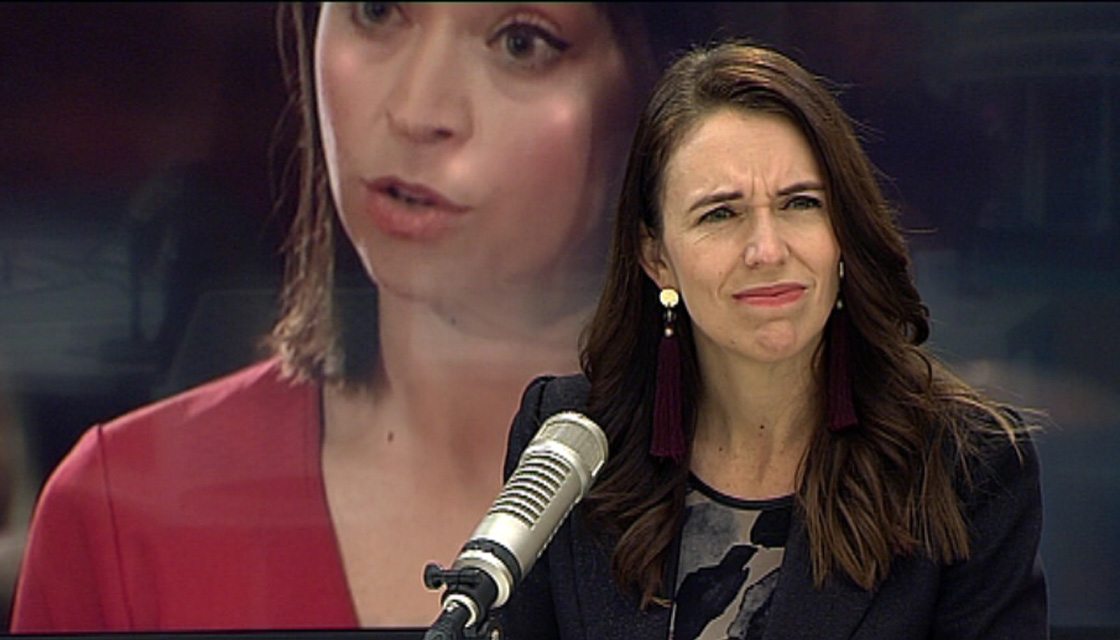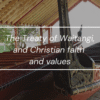PHOTO CREDIT: Newshub.
Freedom of speech is currently under serious threat in New Zealand. This was made very clear in recent days, when both the Justice Minister and the Prime Minister gave misleading interviews on the meaning of their proposed hate speech law. What they said was vague and confusing, and contrary to the document they had released. If you haven’t seen Tova O’Brien’s excellent (and quite disturbing) interview with the Justice Minister, you can find that interview here.
When given three clear and likely scenarios (see 5:37 in the interview above), the Justice Minister was unable to say whether the speech in those scenarios would be a crime. If the Justice Minister, the creator and the designated public educator of these new hate speech laws cannot answer simple questions about his own proposal, how are the public supposed to know what is or isn’t hate speech, and how are the police supposed to properly discern what is hate speech? How can there be a punishment of up to three years in prison, when the definition of hate is so extremely woolly and subjective?
Later, when the Prime Minister was asked about the proposal on NewsHub’s AM Show, she made seven mistaken or misleading claims about her government’s own proposal. You can read more about this in Tova O’Brien’s outstanding follow-up piece, “Jacinda Ardern has misled the public and shut down debate on hate speech laws.” It should be noted that Tova O’Brien personally supports strengthening NZ’s hate speech laws, so her criticisms here are especially significant.
If you have not read the current discussion document on the proposed hate speech legislation, put out by the government, you can do so here.
In that document, the Government states, “The Government wants to foster greater social cohesion in Aotearoa so that it is a place where everyone feels that they belong.” What the government seems to be unaware of is that almost all positive changes in our society have happened because of western society’s commitment to free speech. Things like the abolition of slavery, women’s suffrage, improved treatment of sexual minorities, and labour laws all came about because there was free speech. If our goal is a better and more just society, legislating against hate speech and removing free speech is definitely not the way to do it.
Why is this important for Christians? There are many reasons, but here is one. This proposal is often presented as trying to stop “hatred”. But anyone who has been closely following media or western culture in the last few years realizes that “hatred” can now mean nothing more than mere disagreement. Just disagreeing with someone publicly can now be grounds that you “hate” that person or “group”, if they feel offended by what you say, or even “could” be offended by what you say.
Suppose the law becomes that you may no longer say anything that “offends” anyone. You say something that expresses your deep beliefs, which many people may disagree with, but most people will not be actually offended by. But is it realistic, though, to think that you’re going to come out and say something important about your beliefs and not offend somebody somewhere, even if it is only one person in a thousand? If that’s the case, the proposed law would make everyone think twice about ever saying anything important about what they believe, because someone somewhere will always be offended, and could lay a complaint.
So why is this so important for Christians? Because by its very nature the Christian gospel is going to be offensive to some people. It just is! (and anything else important will likewise often be offensive to those who have different beliefs). If we as Christians value our freedom to share and live the Gospel, we need to make our voices heard against this slippery and dangerous government proposal.
Two things can be true at once. On the one hand we condemn in the strongest possible terms the atrocity that happened in Christchurch on 15 March 2019, and absolutely say no to violence and to all incitement of violence. And on the other hand we can still vigorously uphold the principles of free speech in our free society, even though we often disagree with other people’s opinions and sometimes find them deeply offensive.









0 Comments